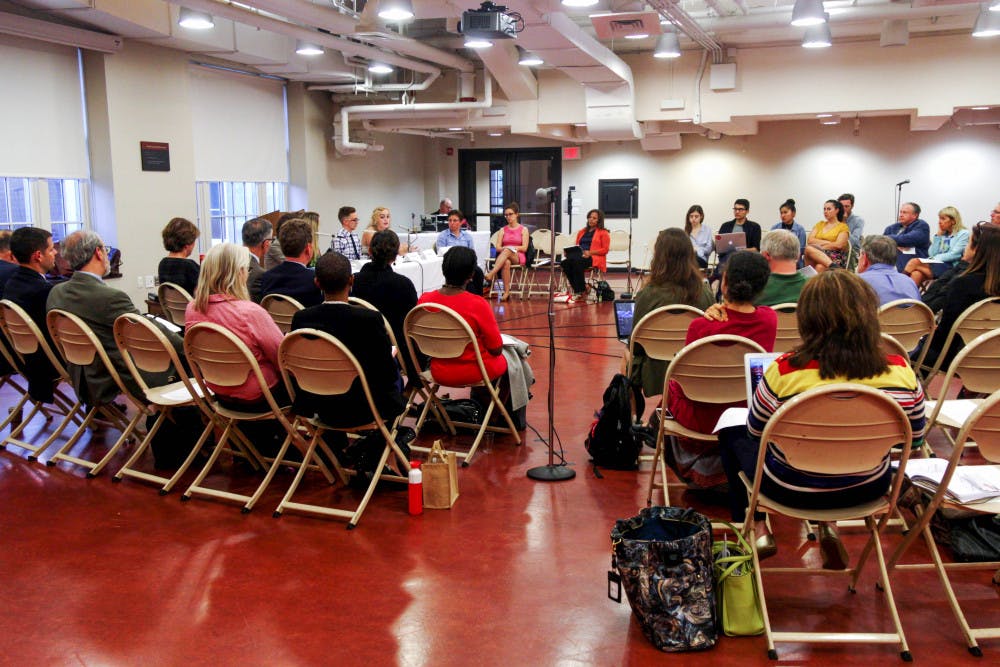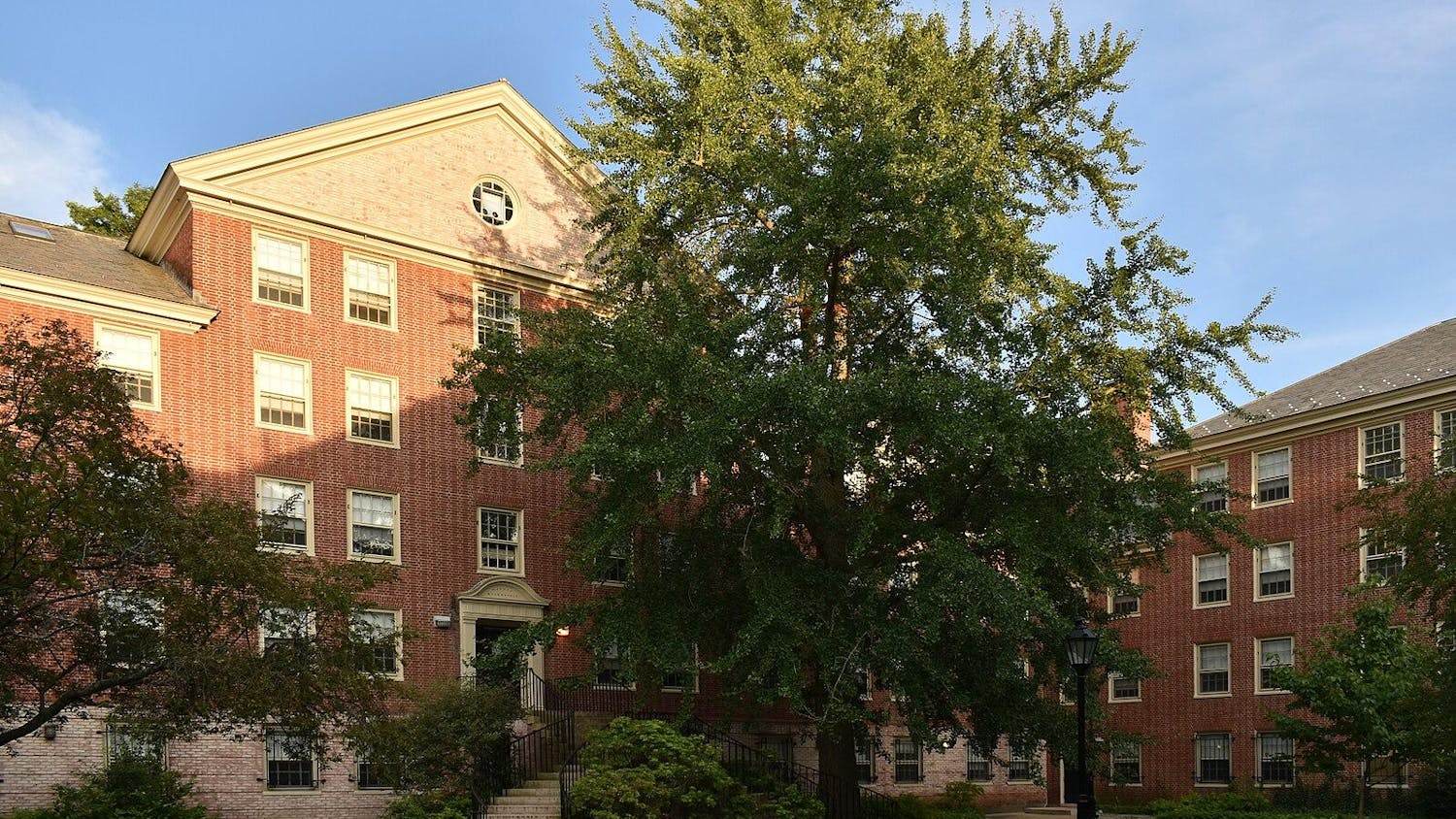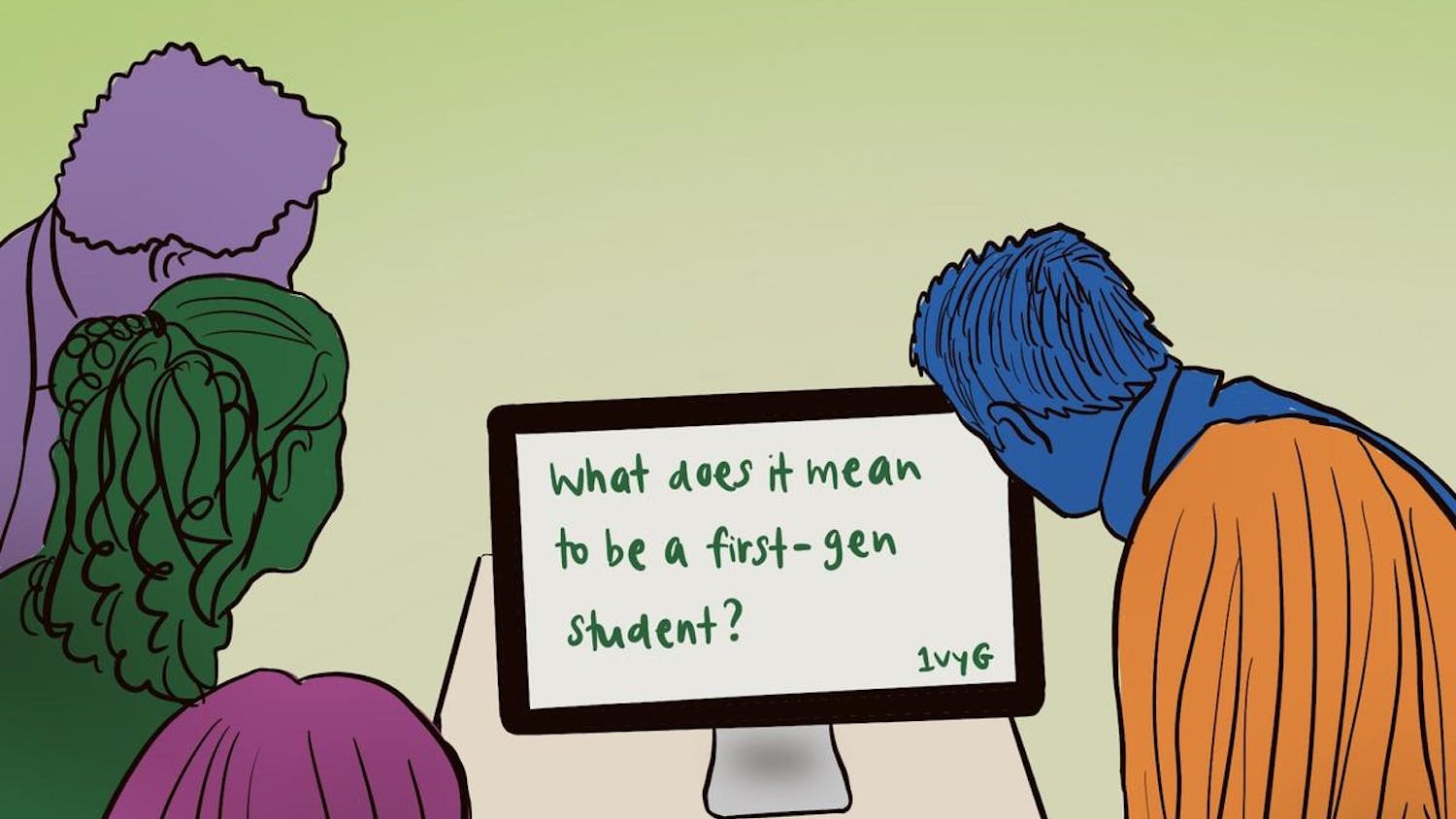Updated Oct. 19, 2016 at 5:09 p.m.
The Brown University Community Coalition met Tuesday afternoon to discuss the Title IX Oversight and Advisory Board’s review on the implementation of the Sexual Assault Task Force’s recommendations and general issues relating to sexual assault prevention and education on campus.
Laurel Bestock, associate professor of archaeology and chair of the Title IX Oversight and Advisory Board, shared the major points that came out of the 2015-2016 review and the priorities of the board moving forward.
Since the SATF released its final report in 2015, the University has made “massive strides” in implementing the recommendations, Bestock said. Goals accomplished include the creation of the Title IX Office, the hiring of an internal investigator and the expansion of the Sexual Harassment and Assault Resources and Education program.
The board was born out of a recommendation from the SATF and is charged with reviewing and making recommendations concerning all Title IX issues. Though not currently in a review year, the board still collects information regarding Title IX to continually assess the implementation of the SATF’s recommendations, Bestock said.
Bestock emphasized that the board identified developing institutional trainings — especially for faculty members — as a top priority for the coming year. Though current training exists, it is not comprehensive and specific enough to Brown faculty members, Bestock said.
“I was so impressed with the effort, but I was mortified” by the actual content of the faculty training, said Susan Harvey, professor of history and religion.
Other faculty members shared Harvey’s concerns about the content of the training, and the Title IX Office is thinking critically about how to develop educational training for faculty members, said Amanda Walsh, Title IX program officer.
Bestock said faculty members have been “unclear about technical responsibilities” regarding reporting and providing resources if a student discloses an experience of sexual harassment or assault with them. The current training “did a very bad job explaining what a responsible employee is,” she added.
Those in the category of responsible employees are required to report incidents of sexual harassment and assault to the Title IX Office, unlike confidential employees, including advocates from the Sexual Health and Assault Resources and Education group, ordained clergy, Counseling and Psychological Services professionals and health care providers. Any faculty members serving as undergraduate advisors qualify as responsible employees, but the lack of clarity has caused confusion, Bestock said.
Moving forward, Bestock said the Title IX OAB will focus on the transparency of the Title IX Office and the flexibility with which Title IX advocates internal and external resources for people involved in the process.
Walsh proceeded to share an update on the Title IX Office itself, noting that while the office is committed to providing open feedback, a balance must be struck between being transparent and remaining cognizant of privacy concerns for students involved in Title IX proceedings.
In the 2015-2016 academic year, the Title IX Office reported 68 incidents — 60 categorized in areas of sexual harassment and assault and eight uncategorized incidents, Walsh said.
Walsh noted two major areas where changes occurred during the year: policy and process. The most significant change regarding policy was clarifying the definition of consent, she said. Previously, the definition included that consent could not be obtained through coercion, taking advantage of incapacitation or manipulation. The previous definition also defined coercion and incapacitation but not manipulation. The new definition struck manipulation from the included circumstances.
Regarding the process, Walsh noted that the office now aims to provide more continuity to hearing appeals. Rather than pull any three or four members of the Title IX council to hear appeals, the office will now use the same three or four members — provided there are no conflicts of interest — to build continuity within the appeals process.
Kelly Garrett, program director for the LGBTQ Center, led an extended Q&A session in which Elliot Ruggles, a SHARE advocate, and Molly Sandstrom ’17, a Sexual Assault Peer Education coordinator, shared more about current sexual assault prevention and education work on campus.
Sandstrom shared the new SAPE curriculum, which focuses around community standards and values rather than bystander intervention. The curriculum aims to “move the undergraduate community beyond codified standards” and to incorporate “identity components” of communities into action plans for preventing and ending sexual violence, Sandstrom said.
Alexis Rodriguez-Camacho ’18 asked if SAPE plans to extend the trainings to beyond Greek and program houses, which require all new and returning members to receive SAPE training.
Sandstrom noted that because SAPE is a volunteer student group, more requests for training require more volunteer power. The group is discussing possible trainings with various student groups, including the Undergraduate Council of Students, the Meiklejohn program and various athletic teams. SAPE trained over 800 students last semester and is working to increase its capacity, she added.
Another student questioned how to assess relationships with those who have perpetrated said acts of violence while also advocating to eliminate gender-based discrimination and violence on campus. The student shared that he had an acquaintance who recently returned from a suspension because he was found responsible for such an act.
Ruggles recommended the University consider community reintegration programming, similar to programs in place at other institutions, and said that Janet Cooper Nelson, university chaplain, is currently available for those needs. He also stressed the way these situations present the opportunity to prevent further violence from happening.
Correction: A previous version of this article stated that the University currently has community reintegration programs. In fact, Elliot Ruggles, a SHARE advocate, recommended the University consider community reintegration programming. The Herald regrets the error.





